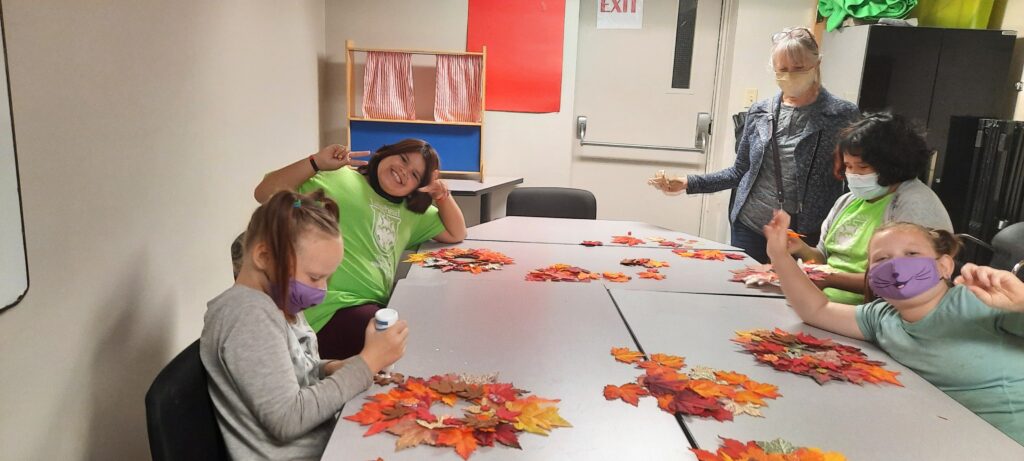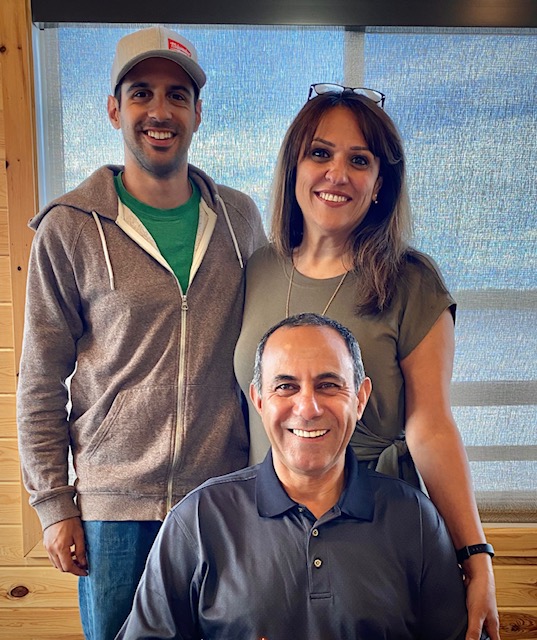
“Now is the time to cheer and refresh the down-cast through the invigorating breeze of love and fellowship, and the living waters of friendliness and charity.” 1
At the tail end of the summer, a group of nine friends, mostly from Thunder Bay gathered for a reflection meeting. There were some loose plans but they felt unclear. The group had been trying to learn about intensity and what it would look like to commit to pursuing audacious goals over a dedicated period of time as a team.
Initially, they were considering a focus on devotional gatherings, but then shared the notion of a home visit campaign. Through consultation, they developed the vision of a 14-day home visit campaign. At first, they were hesitant to set a high goal, thinking they could perhaps manage 20 or 25 home visits, but decided to set their sights higher with the goal of 40 or 45. And over the following two weeks the team not only met their goal, they doubled it.
They had only a matter of days to prepare for the campaign, so they invited Auxiliary Board Member Rebecca Hamilton-Bachiu to join them so they could reflect on what constitutes a home visit. One of the pieces of guidance they studied reminded them of how visits can take many forms:
“Not infrequently, outreach to the wider community takes the form of a visit to a home, sometimes after prior arrangements have been made with the residents, although not always. What should be understood in this respect is that such visits are not isolated acts.” 2
They also drew on what they had learned from studying the second book of the sequence of courses around this idea of elevated conversations. One participant, Carolyne Dowdell, describes that:
“All of us were building on different experiences that had prepared us for that moment, even though we felt quite unprepared. We felt a bit shaky. We were learning that a home visit could take many forms. We were thinking they would be Baha’is or a close contact. But then we realized you could also just run into people. By the end of the first week, we’d already had 40 home visits. So we kept right on going.”
Carolyne says that the focus of the team to learn about visits is what led to so many confirmations.
“Everyday I had the intention to have some home visits. One of the days, there was nothing I had actually planned. It was already late in the afternoon. I stopped at the grocery store. It was supper time and I thought, ‘I haven’t had a visit yet.’ And in the ice cream aisle, I recognized this person, and it was someone who had been close to the community but I hadn’t seen them in awhile and we had this lovely conversation there.”
In one day Carolyne had five visits in the span of 2 hours simply by going to visit a focus neighbourhood she has been connected to for several years. She used the time to connect with a number of families and ended up meeting by chance with the Director and two outreach workers of a city wide youth program to talk about the junior youth program.
“Through those fourteen days, I was just flying. It just kind of happened. I could figure out people I wanted to talk to. I have a friend I walk with regularly and I was able to lift that up a little. I also had a really uplifting conversation with another Baha’i; we had such a profound conversation about volunteering in the community, the idea of service, the model of ‘Abdu’l-Bahá, this whole idea of service and that sincere intention. This is where so many things come about.”
Another team member, Roya Moshfeghi, found that the campaign gave her a chance to focus on nurturing neighbourhood connections she had made with her daughter and grandson throughout the pandemic.
“… for the campaign, I had put down all these names and I started to call all my friends. The connections came. We would get together outside. Maybe we were being systematic, planning…this is what allows for confirmations. Because I was praying for my neighbours and friends, and they were just starting to come without me even inviting them. One time, a friend called and said “can I come over?” and we had a beautiful conversation about spiritual growth.”
Roya’s daughter Maha agrees, and says she found that simply having the intention to elevate conversations brought her opportunities.
“Since having our son Zayn, we’ve been noticing how easy it is to connect with other parents, all these common things we parents seem to go through,” she explains. They were also able to bring together some of the Bahá’í youth in Thunder Bay who had lost contact because of the pandemic, and plans are underway for how they can continue to meet.
Roya’s sister May Naimian is also part of the team but was working at their fly-in remote fishing resort she and her husband run at Oak Lake, about 5 hours northwest of Thunder Bay. The resort had lost their cook, so May was extremely busy. Nonetheless, she describes feeling deeply connected to the campaign:
“I would get updates from Roya and Maha and I just couldn’t participate much. I remember being so busy but all I said, everyday, was: “Ya Baha’u’lláh Abhá.” These words came out of my mouth all day, nonstop. I don’t know how to explain it…but I was really always with Baha’u’lláh, whatever I was doing during the day.”
May describes how open they have been about being Bahá’ís with those who visit the fishing resort. One day, during the campaign, a Catholic priest who had been praying with a few close friends invited May to sit with them. For an hour and a half, they asked her a number of questions related to the nature of the soul, life after death, peace, Bahá’í administration and the concept of unity.
May also works with a number of staff and, this year, made a close friend.
“This woman… I love her dearly. We ended up talking about her mom and how she lost her mother last year. She was sharing that she felt guilty that because of Covid they couldn’t go visit her. I said ‘when I lost my Dad, that’s just the feeling I had too, but do you know what? Do you mind if we say some prayers for their souls, they need that nourishment from us.’ We prayed, and then for forty five minutes, we talked about ‘what are we’, that we aren’t dust. We are more like God, our souls…we talked a lot about that. We all have the opportunities in front of us, it’s just a matter of using them, and being aware of them, when they come. It’s there, it doesn’t matter who: neighbour, friend, coworker, guest.”
The team’s reflections and their love for one another and those they meet in their daily interactions brings to mind the guidance of Shoghi Effendi:
“Indeed the believers have not yet fully learned to draw on each other’s love for strength and consolation in time of need. The Cause of God is endowed with tremendous powers, and the reason the believers do not gain more from it is because they have not learned to draw fully on these mighty forces of love and strength and harmony generated by the Faith.” 3

1 Bahá’u’lláh, Gleanings from the Writings of Bahá’u’lláh, p. 7
2 Universal House of Justice, 28th December, 2008
3 Shoghi Effendi, Living the Life, p. 8


